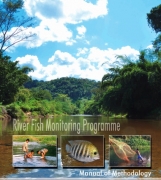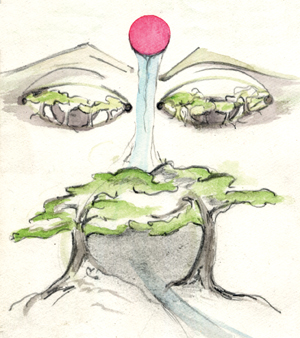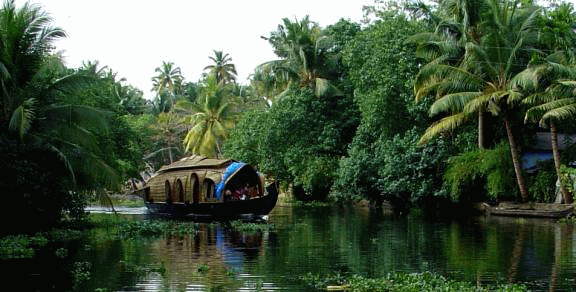Ecology and Environment
Love for green: Healing the hills with trees - Work of Sachidanand Bharti in Uttarakhand (Video)
Posted on 12 Jun, 2010 12:01 PMLove for green: Healing the hills with trees - Work of Sachidanand Bharti in Uttarakhand
From Tubaah (NDTV Network) website (November 26, 2008).
Sachidanand Bharti is known as the treeman in Uttarakhand, where he has been dedicatedly planting trees since the last 25 years. Hills in Uttarakhand were once barren, but now they are lush green, all due to his efforts. Bharti is a school teacher by profession but his real calling is as a climate crusader.

Millions of people worldwide are opposed to plastic bottled water - An alternative solution is here
Posted on 11 Jun, 2010 07:51 PMThe momentum for a better Global drinking Water Environment is increasing.
One way to achieve this Mission is to reduce the global High energy wasteful costs in producing Plastic Bottles, then transporting these products (so-called mineral,spring, volcanic Water) daily to Supermarkets, Newsagents & Corner stores.
Dams on Himalayan rivers: How good is the science?
Posted on 08 Jun, 2010 05:38 PMThis brief article by Prof Jayanta Bandyopadhyay in the May 16-31 2010 issue of Business Economics magazine, highlights the recent plans of the central and state goverments of constructing a large number of dams on Himalayan rivers. Environmentalists continue to consistently argue against the construction of dams that are built without respect for ecological sciences and warn that this could lead to increase in disasters in the fragile Himalayan region.
River Fish Monitoring Programme - Manual of Methodology by Kerala State Biodiversity Board
Posted on 07 Jun, 2010 03:33 PM Measurement of riverine biota, particularly benthic macroinvertebrates (such as crustaceans and aquatic insects) and fish, has become a widely accepted method of identifying the structural or functional integrity and the overall health of a riverine system. This manual from the Kerala State Biodiversity Board (KSBB), describes in detail the field procedures to be followed in such fish monitoring/measurement surveys, conducted for riverine ecological systems.
Measurement of riverine biota, particularly benthic macroinvertebrates (such as crustaceans and aquatic insects) and fish, has become a widely accepted method of identifying the structural or functional integrity and the overall health of a riverine system. This manual from the Kerala State Biodiversity Board (KSBB), describes in detail the field procedures to be followed in such fish monitoring/measurement surveys, conducted for riverine ecological systems.
KSBB has taken up this manual publication effort, in the conxtet of a state-wide fish monitoring programme, that aims to survey all the 44 rivers of Kerala with the involvement of resource persons from local colleges, research institutes, experts and fisherpeople community.
In remembrance of water: How a conglomeration of mining companies, politicians and real estate developers are endangering the vast aquifers that give Goans their water
Posted on 07 Jun, 2010 01:00 PM Author: Hartman de Souza Art: Jessica Schnabel Content Courtesy: Himal Southasian
Author: Hartman de Souza Art: Jessica Schnabel Content Courtesy: Himal Southasian
Where there is water, there is probably ore beneath.
Having trekked several times to Paikdev’s spring to gulp water pouring out of the moss-covered iron mouth, one would think the mysteries of the journey would fade. But, if anything, they have become more poignant – sitting here at this shrine to the snake deity of the Velip community in the village of Maina, in Goa’s Quepem District. It is here, amidst thousands of hectares of rolling forests, in the foothills of the Western Ghats, home to countless perennial springs and streams, wildlife and more, that a strange conglomeration of mining companies, politicians and real-estate developers are sharpening their collective sword. These activities were already afoot a year ago, with mining operations systematically destroying forests, because, as the government in Panjim stated at the time, the iron ore was needed by New Delhi to keep its nine-percent growth rate on track. This year, the message is no different.
Vembanad Fish Count - Report of the Participatory Fish Resources Surveys of Vembanad Lake (Kerala) done in 2008 and 2009 by ATREE
Posted on 03 Jun, 2010 06:23 PM The Vembanad estuarine system, the largest of its kind on the west coast of India is known to be abundantly enriched with diverse fishery resources, providing feeding, spawning and rearing areas for a very large proportion of commercial (fin) fish and shellfish. However, ecosystem health of the Vembanad wetlands is alarmingly declining due to a variety of reasons - obstruction of river courses, sand mining & habitat destruction, loss of riparian canopy cover, encroachment, pollution and unethical fishing practices. Reduced summer flow due to drying up of rivers and pollution hazards from agro-chemicals and sewage also lead to mass mortality of fishes. Depletion of fishery resources has changed this ‘inland fish basket’ to an ‘inland wastebasket’, driving the fisherfolk, the primary stakeholders of the lake into a livelihood crisis.
The Vembanad estuarine system, the largest of its kind on the west coast of India is known to be abundantly enriched with diverse fishery resources, providing feeding, spawning and rearing areas for a very large proportion of commercial (fin) fish and shellfish. However, ecosystem health of the Vembanad wetlands is alarmingly declining due to a variety of reasons - obstruction of river courses, sand mining & habitat destruction, loss of riparian canopy cover, encroachment, pollution and unethical fishing practices. Reduced summer flow due to drying up of rivers and pollution hazards from agro-chemicals and sewage also lead to mass mortality of fishes. Depletion of fishery resources has changed this ‘inland fish basket’ to an ‘inland wastebasket’, driving the fisherfolk, the primary stakeholders of the lake into a livelihood crisis.
Eco Festival 2010 : Films on water, wildlife & the environment, Kriti Film Club, New Delhi
Posted on 01 Jun, 2010 12:46 PM
Training programme for lawyers involved in environmental action, IRN Lawyer Forum, Bennangur, Tamil Nadu
Posted on 18 May, 2010 12:09 PMOrganizers: Indian River Network (IRN) Lawyer Forum, National Law School of India University and Tamil Nadu Environmental Council Lawyer Forum
Venue: Malligai Farm - Bennangur, (Near Bangalore), Tamil Nadu
Description:
We are happy to inform that a training programme for south Indian Lawyers involved in environmental activities will be conducted by the Resource persons from National Law school of India University with materials and valuable certificate for the participants and by eminent faculties from NGO's.
Ramsar Small Grants Fund
Posted on 10 May, 2010 10:41 AM Article Courtesy: Funds for NGOs.org
Article Courtesy: Funds for NGOs.org
“The Ramsar Small Grants Fund (SGF) was established in 1990 as a mechanism to assist developing countries and those with economies in transition in implementing the Convention and to support the conservation and wise use of wetland resources, with a strong human and social dimension. From 1991 to 2008 the Fund has provided a total of 7.5 million Swiss Francs to 227 projects from 108 countries, providing up to 40,000 Swiss francs (about US$32,000) per project.”
Presentation on rainwater harvesting by BWSSB at Kormangala
Posted on 07 May, 2010 11:29 AMOrganizer: Environmental Synergies in Development
Venue: Mantri Classic Hall. ST Bed
Description:




